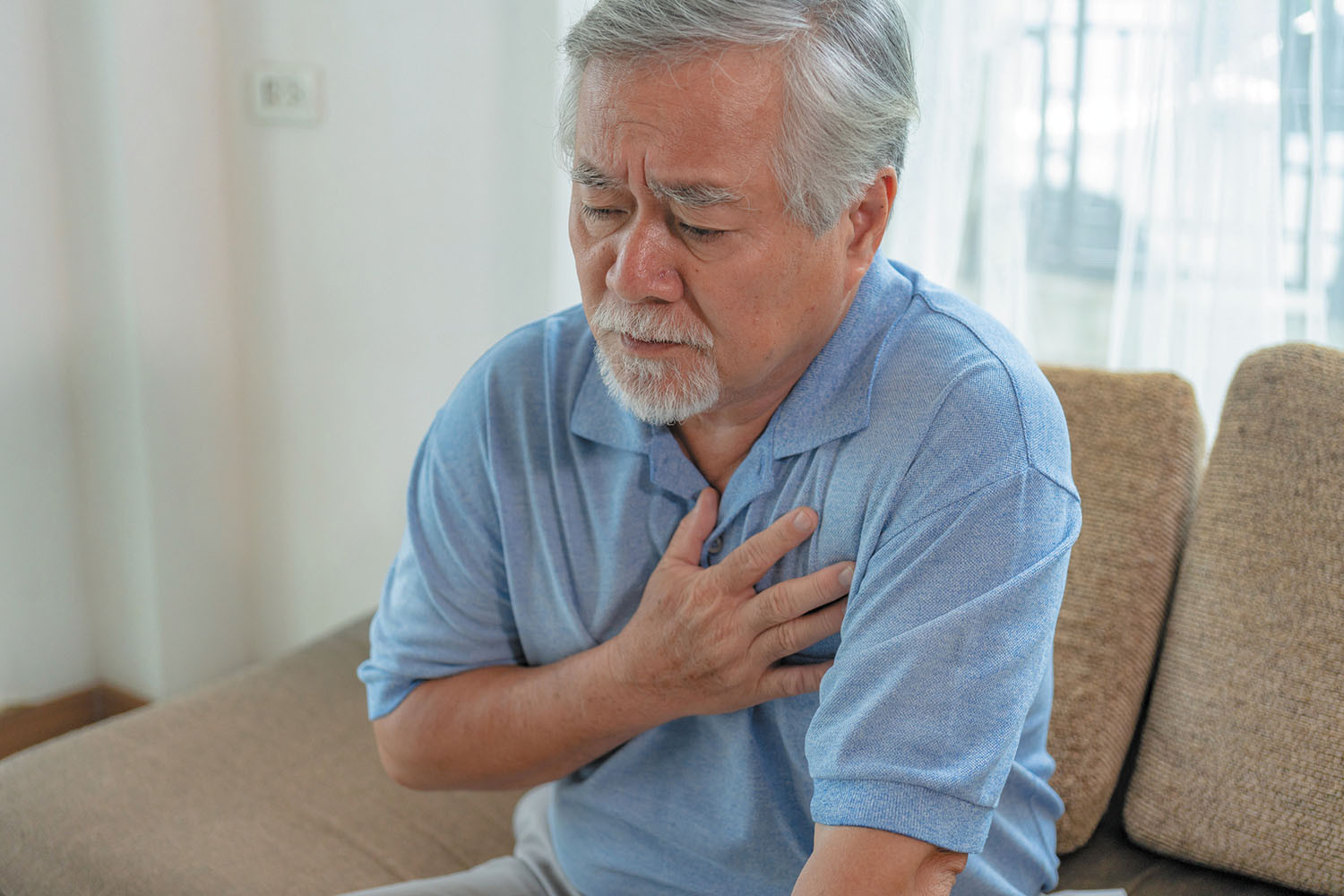
5 timeless habits for better health

What are the symptoms of prostate cancer?

Is your breakfast cereal healthy?

When pain signals an emergency: Symptoms you should never ignore

Does exercise give you energy?

Acupuncture for pain relief: How it works and what to expect

How to avoid jet lag: Tips for staying alert when you travel

Biofeedback therapy: How it works and how it can help relieve pain

Best vitamins and minerals for energy

Should you take probiotics with antibiotics?
Heart Attack Archive
Articles
Heart attacks strike in different ways
There are two different mechanisms by which most heart attacks happen. Both are related to insufficient blood flow to an area of the heart, most often secondary to fatty plaque buildup in coronary arteries. Chest pain remains the most common heart attack symptom, but others are often subtle, and the underlying process causing the heart attack can differ. It's important for people to recognize the different signs of heart attacks, so they know when to seek immediate medical care.
Calm your anxious heart
Anxiety disorders promote the stress response, which influences the same brain systems that affect cardiovascular functions.
The (almost) last word on alcohol and health
Research into the health benefits of alcohol has not provided a clear answer. Some findings suggest that alcohol helps protect against heart disease and lowers the risk of heart attacks and strokes, and drinkers tend to live longer than nondrinkers. Other studies say these benefits are less clear. If you don't drink alcohol now, there are no health reasons to start drinking. If you do enjoy it, it's best to have no more than 2 drinks in the same day.
Our evolving understanding of the problem with plaque
New imaging techniques that use light or sound waves to create images of the inside of coronary arteries have helped researchers better understand the fat-laden plaque that builds up inside artery walls (atherosclerosis). Most heart attacks happen when small, inflamed areas of fatty plaque rupture suddenly, causing a clot that blocks blood flow. This may explain why treating large, obstructive plaques with stents or bypass surgery does not seem to prevent heart attacks or help people live longer.
When walking leads to leg pain
Peripheral artery disease (PAD), which occurs when fatty deposits clog arteries outside the heart, is underrecognized and potentially dangerous. The hallmark symptom is leg pain that occurs with exercise, called intermittent claudication. PAD is more common among people who are older, who smoke, and who have diabetes. The recommended treatment involves short periods of walking interspersed with rest periods when pain occurs. Walking increases blood flow in the leg's smaller arteries and helps create new channels to move blood around the blockages; it also helps discourage new blockages.
Salty diet linked to narrowed arteries in the heart and neck
The more salt people eat, the greater their risk of clogged heart and neck arteries, a 2023 study suggests. Narrowed arteries (atherosclerosis) can lead to heart attacks and strokes.
Cannabis: A cardiovascular concern?
Marijuana use, which is rising among older adults, appears to heighten the risk of heart-related problems. Cannabis is known to increase heart rate and blood pressure, although high doses can have the opposite effect. Marijuana use has been implicated in causing heart attacks, atrial fibrillation, stress cardiomyopathy, and arteritis.
When you take these popular pain relievers, proceed with caution
Over-the-counter and prescription drugs known as NSAIDs pose a risk to the cardiovascular system. They include over-the-counter drugs such as ibuprofen (Motrin, Advil) and prescription drugs such as celecoxib (Celebrex). NSAIDs can cause the kidneys to hold on to salt and water, which tends to raise blood pressure. They also appear to affect the inner linings of blood vessels and alter other blood substances in a manner that promotes blood clots. People who need these pain-relieving medications should take the smallest dose for the shortest possible period of time.

5 timeless habits for better health

What are the symptoms of prostate cancer?

Is your breakfast cereal healthy?

When pain signals an emergency: Symptoms you should never ignore

Does exercise give you energy?

Acupuncture for pain relief: How it works and what to expect

How to avoid jet lag: Tips for staying alert when you travel

Biofeedback therapy: How it works and how it can help relieve pain

Best vitamins and minerals for energy

Should you take probiotics with antibiotics?
Free Healthbeat Signup
Get the latest in health news delivered to your inbox!
Sign Up











